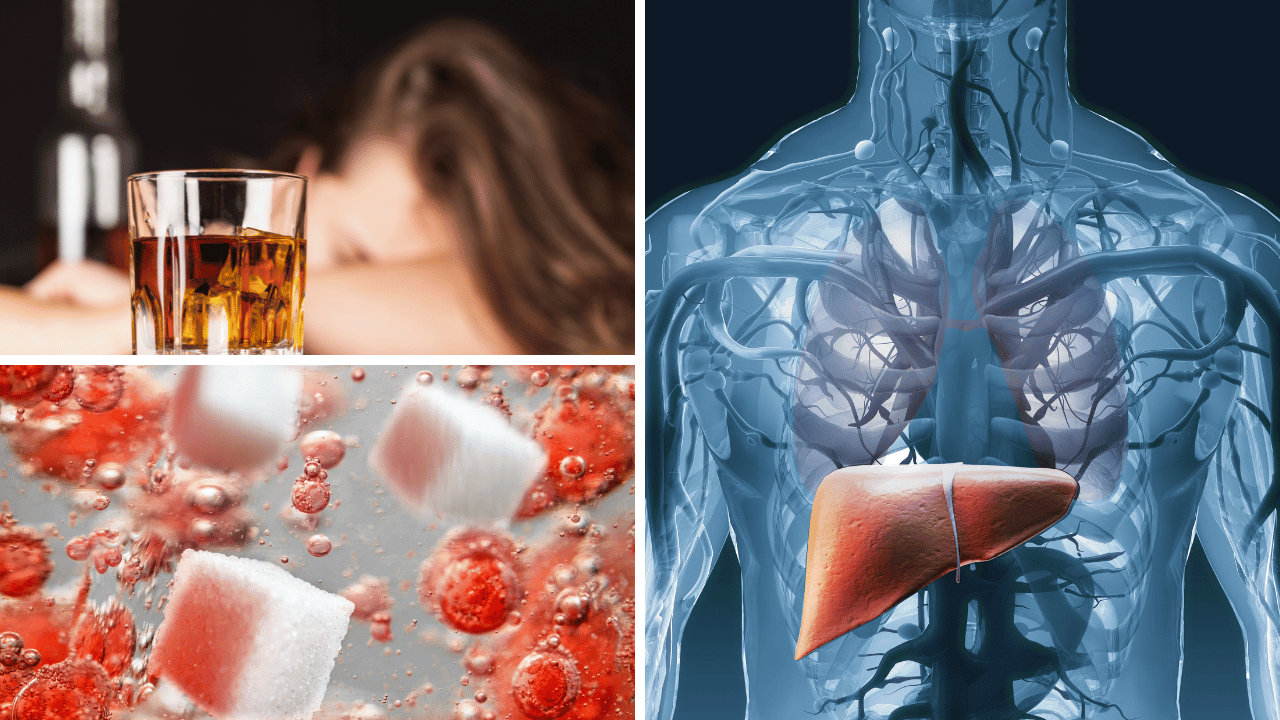Have you ever wondered what lies within your body, beyond what the naked eye can see? Imagine your gut as a bustling city, where different species of bacteria and other organisms interact and communicate with each other. Read on to discover the fascinating mysteries of the microbiome, a/k/a your Gut!
Key Takeaways:
- Understanding the gut-microbiome connection is crucial for maintaining digestive health and overall well-being.
- Lifestyle and diet changes, including the consumption of fermented and probiotic foods, can foster a healthy gut microbiome.
- Scientific research continues to reveal the extensive impact of gut health on various aspects of human health, including mental health and immune system function.
The human gut microbiome is a complex and dynamic ecosystem that plays a pivotal role in our overall health. This intricate network of microbial communities, consisting of trillions of bacteria, viruses, fungi, and other microorganisms, resides within our gastrointestinal tract and has a profound influence on everything from our immune system to our mental health.
In recent years, the medical community has turned its focus to the gut microbiome, uncovering fascinating insights into how these tiny inhabitants can dictate the state of our health.
The Human Gut Microbiome: A Thriving Ecosystem Within
The human gut microbiota is a bustling metropolis of microorganisms that have co-evolved with us over millennia. These indigenous bacteria are not mere passengers; they are integral to our well-being. They help us absorb nutrients, break down dietary fiber, and even synthesize certain vitamins and amino acids that our bodies cannot produce on their own. A healthy gut microbiome is characterized by a diverse and balanced bacterial community, which is essential for maintaining a healthy body.
However, when the balance is disrupted, and harmful bacteria outnumber the beneficial ones, it can lead to poor gut health. This imbalance, known as dysbiosis, has been linked to a myriad of health issues, including irritable bowel syndrome (IBS), inflammatory bowel diseases like Crohn's disease and ulcerative colitis, and even mental health concerns such as anxiety and depression. The connection between the gut and the central nervous system, often referred to as the "gut-brain axis," is so strong that some researchers consider the gut to be our "second brain."

Diet and Lifestyle: Shaping Your Microbial Destiny
Our lifestyle and diet changes have a significant impact on the composition of our gut microbiota. Eating a diet rich in probiotic foods, such as yogurt, kefir, and other fermented foods, can introduce healthy bacteria into the gut. These beneficial bacteria can help crowd out pathogenic bacteria and positively affect our health.
On the other hand, a diet high in processed foods, artificial sweeteners, and low in dietary fiber can promote the growth of bad bacteria, leading to an unhealthy gut.
Environmental factors, including stress levels, sleep disturbances, and environmental exposures, also play a role in shaping our gut microbiome. For instance, higher stress levels can alter the microbial ecology of the gut, leading to an increase in harmful bacteria. Therefore, managing stress, getting enough quality sleep, and avoiding harmful environmental exposures are crucial for maintaining a healthy microbiome.
The Immune System and Gut Health: An Intimate Relationship
The immune system and gut health are closely linked. A large portion of the body's immune cells reside in the gut, where they are constantly interacting with the microbial communities. A healthy gut microbiome supports the immune system by educating it to distinguish between friendly and harmful invaders. This helps prevent overreactions to non-threatening substances, which can lead to allergies and autoimmune diseases.
Conversely, an unhealthy gut can compromise the immune system, making the body more susceptible to infectious illnesses and even chronic diseases like heart disease. The gut microbes produce substances that can influence immune responses, and a balanced microbial community ensures that these substances support rather than undermine our health.

The Role of Probiotics and Prebiotics in Digestive Wellness
Probiotic supplements and foods are often touted for their ability to improve gut health. These products contain live beneficial bacteria that can colonize the digestive tract and support a healthy microbiome. Prebiotics, on the other hand, are non-digestible fibers that feed the good bacteria already present in the gut. Together, probiotics and prebiotics can help maintain a healthy balance of gut bacteria, reduce digestive discomfort, and promote overall digestive health.
While the health claims surrounding probiotics are vast, it's essential to seek professional medical advice before starting any new supplement regimen. Not all probiotic strains are the same, and some may be more effective for certain conditions than others. Additionally, incorporating a variety of probiotic and prebiotic foods into your diet can be a more natural way to support your gut health.
The Future of Gut Health: Insights from the Human Microbiome Project
The Human Microbiome Project, an initiative aimed at understanding microbial communities in the human body, has shed light on the complexity of the gut microbiome. This research has revealed that the gut microbiota is influenced by a myriad of factors, including genetics, age, and even geography. As we continue to unravel the mysteries of the gut microbiome, we are learning more about how to manipulate it for better health outcomes.
For example, personalized nutrition, based on an individual's unique gut microbiota, may become a reality in the future. By tailoring dietary recommendations to the specific needs of our gut microbes, we could potentially prevent or treat diseases more effectively. This personalized approach to health underscores the importance of understanding the gut-microbiome connection.

Gut-Microbiome FAQs
How does gut health affect mental health?
Gut health profoundly influences mental well-being through the gut-brain axis. A balanced microbiome supports neurotransmitter production, impacting mood and cognition. Conversely, imbalances can trigger inflammation and stress responses, contributing to conditions like anxiety and depression. Prioritizing gut health emerges as a pivotal strategy for fostering mental resilience.
Can changing my diet really improve my gut health?
Adopting a nutrient-rich, diverse diet positively influences gut health. Fiber-rich foods nourish beneficial microbes, promoting a balanced microbiome. Probiotics and prebiotics enhance microbial diversity. Conversely, processed foods and excessive sugars can disrupt the microbiome. A mindful diet is a key determinant of long-term gut well-being.
Are probiotic supplements necessary for maintaining a healthy gut?
While probiotic supplements can be beneficial, they're not essential for everyone. A well-rounded diet with fermented foods provides natural probiotics. However, those with specific gut issues or on antibiotics may find supplements helpful. Consulting a healthcare professional ensures personalized advice on incorporating probiotics for optimal gut health.
How do I improve my microbiome?
Enhance your microbiome by prioritizing a diverse, fiber-rich diet with fruits, vegetables, and fermented foods. Limit processed sugars and antibiotics when possible. Stay active, manage stress, and ensure sufficient sleep. These lifestyle choices support microbial diversity, fostering a healthier and more resilient gut microbiome. https://youtu.be/tQjFj66WNcc
What are the 3 superfoods for your gut?
Include these gut-friendly superfoods: 1. Yogurt, rich in probiotics. 2. Fiber-packed foods like broccoli and legumes, promote microbial diversity. 3. Fermented foods like kimchi or sauerkraut enhance beneficial bacteria. Incorporating these into your diet nurtures a robust microbiome, crucial for overall digestive health.
Is apple cider vinegar good for gut health?
Yes, apple cider vinegar may benefit gut health. It contains acetic acid, which supports digestion and may aid in maintaining a balanced pH in the digestive system. However, moderation is key, as excessive consumption can have adverse effects. Consulting a healthcare professional is advisable for individual considerations. https://youtu.be/LkUGGGbJAwU
What foods are bad for the gut microbiome?
Processed foods high in sugars and artificial additives, low-fiber diets, and excessive red meat consumption can harm the gut microbiome. Artificial sweeteners may also disrupt the microbial balance. Limiting these and prioritizing a diverse, plant-based diet supports a healthier and more resilient gut microbiome.

May we say in conclusion…
The science behind digestive wellness is deeply rooted in the gut-microbiome connection. A healthy gut microbiome is essential for a healthy body, influencing everything from nutrient absorption to mental health. By making conscious lifestyle and diet changes, such as incorporating fermented foods and managing stress, we can foster a healthy gut microbiome.
The ongoing research, including the insights from the Human Microbiome Project, continues to highlight the importance of gut health in maintaining overall well-being. As we learn more about the intricate relationship between our gut and the rest of our body, we can better appreciate the profound impact that these microscopic organisms have on our health.











